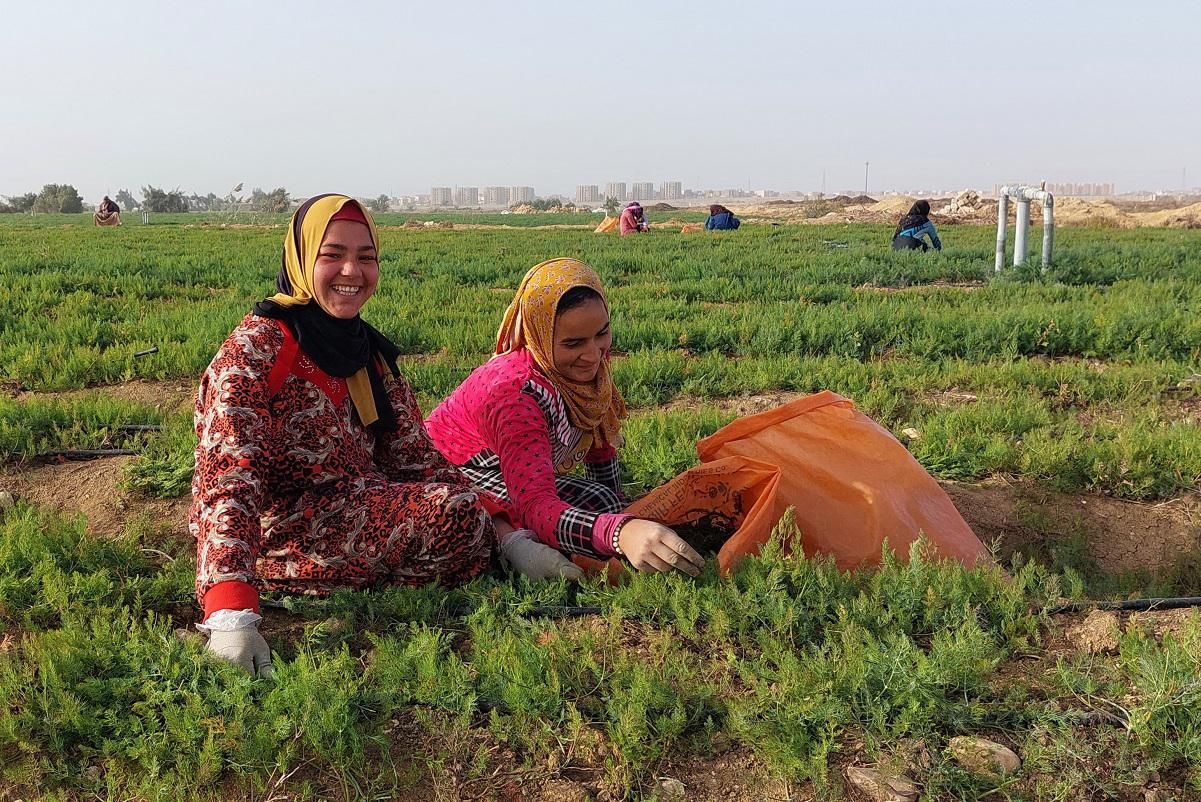28 April 2022
Suppliers
Farmer training programmes in Egypt
In December 2016, Organic Herb Trading funded a farmer training programme in Egypt, in collaboration with the Egyptian Government’s Department of Agriculture, and one of our long-standing key suppliers. Now in 2022, the impacts of the training are coming to fruition and we’re looking ahead to our next initiatives in partnership.
Egypt provides truly exceptional herb growing conditions and is well known as a key producer of some of our most beloved organic herbs, such as Parsley, Chamomile, Peppermint, Spearmint, Marigold, and Dill. However organic growing is not without its challenges in this region, due to a legacy of heavy pesticide use and the background contamination of water used for irrigation of crops.
In 2016, in collaboration with the Egyptian government we designed an organic training programme and an action plan to help mitigate against these risks. The training was focused on best-practice organic farming techniques for building soil fertility, managing pests, and ecosystem resilience. Alongside the training, together with our producers we identified an area of virgin growing land to convert to organic and put these newly embedded techniques and principles into practice.
In 2022, the results are clear to see. Whilst farming in the desert reduced the risk of contamination with pesticides from conventional farming, a knock-on was the naturally high level of salt in the soil, at a concentration that could kill vulnerable crops. The farmers used composting techniques learnt as part of the training programme, to increase the organic matter in the soil, as well as improving drainage by improving irrigation the channels around the fields, to carry water away more effectively. As a result, the salinity of the soil was reduced, and the crops are healthy and flourishing.
In recognition of the strategic importance of herb growing in Egypt, we employ an agent who is based in Cairo. His crucial visits to farms have continued even while international travel has been impossible. With his support and knowledge, learning has been consolidated over time, and we are able to foster long-term change.
We are now looking at a further round of funding and are currently identifying new projects. Under discussion include tree planting to form wind breaks - which can help protect against pesticide drift from conventional farming - and solar installation to power the irrigation system.
As well as supporting growing practices, a critical consideration for us is ensuring that workers are treated fairly and humanely. We have developed our own Ethical Sourcing Policy, which is regularly updated and reflects our commitment to treat our suppliers with respect. Committing to long-term contracts and paying a fair price means we support the stability of the supplier business, which in turn means they can provide better working conditions and more secure employment. Many of the workers on this farm are women, often mothers to young children, and the work enables them to support their families whilst at the same time building their career prospects.
We know that we are nothing without our suppliers, and so for 40 years we have built longstanding, mutually beneficial relationships that are the bedrock of our business.
To learn more about how we work with our suppliers, visit our website here.


